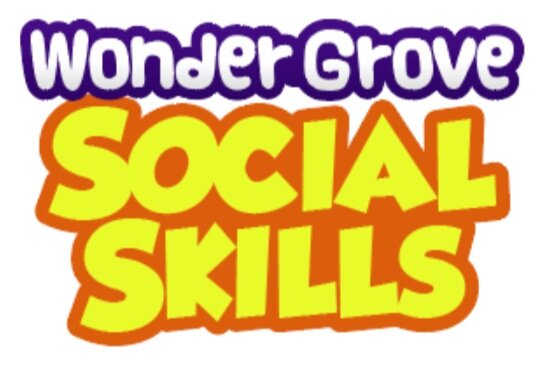Teaching social skills to our littlest learners can be very rewarding… but also has the potential to be a liiiiiitle bit frustrating!
Stick to these proven practices to ensure that your social skills practices makes your classroom (almost…) perfect!
Keep it short and entertaining! You already know about preschool attention spans, and you are likely a SOLID entertainer. Get a process together for teaching social skills that is easy on you, short and to-the-point, and overall FUN for the kids!
Make it a staple in your day. We do not expect kids to learn how to read or the basics of number sense by just lecturing once a week. We demonstrate, practice, play games, review, and assess these major educational pieces DAILY! Social skills should get the same attention if we expect responsive growth.
Model and practice! Social stories are THE go-to way to model social skills, and modeling is a great lead-in to practicing! The problem is that social stories are often not drawn or written in an engaging way. Video versions of social stories are great, but sometimes collecting them to make your own collection can be time-consuming or inefficient, especially when ads, long videos, or broken links are taken into account!
WonderGrove PreSchool is a great option if you’re looking for an age-appropriate digital library of social and life skills. As a bonus, printable books even come with the videos!
Teach emotion recognition and practice desired communication and response strategies.
We could talk for days about functions of behavior, but for most students of preschool age, undesired responses to stimuli or real-life situations happen because of need for attention, lack of communication strategies, escape or avoidance, or the need or want of something such as an item or activity. As adults, we have the same emotions for the same reasons, but we have developed ways to recognize triggers, emotions, and manage emotions in a socially acceptable way. It’s our job to get our kids there, and that means 1. specifically naming emotions, 2. recognizing emotions in others, 3. matching events and situations that trigger emotions, and 4. learning and practicing coping skills. This means our kids need a way to communicate about emotions.Point out opportunities to practice social skills.
By pointing out opportunities to practice a learned social skill, you are empowering students to make real-life choices. This skill is similar to when you teach something academic, such as letter recognition, then point out letters and words in the course of their daily lives. When kids see these connections, they are excited to show what they know, especially if their efforts are recognized positively!
Replace undesired social responses with desired responses.
If students have been responding in certain (undesired) ways to events or situations, consider it a habit. That means instead of saying “don’t do that,” we need to tell them WHAT to do instead and practice and role-play those situations. A helpful tip when a habit is especially engrained is to identify a location or time of day where the reaction is happening and then speak to the student before this event to prepare them for how they might feel. For example: “We are about to go to recess. Other kids might be on the swings, and I know they are your favorite. Let’s practice telling the other kids we would like a turn, then waiting for them to be done.”
WonderGrove PreSchool checks all of these boxes! WonderGrove videos have been used in classrooms for nearly a decade. This fall, for the first time, they’ve been arranged to meet the needs of a preschool educator. You’ll save time, and your students will love and connect with the characters who display positive behaviors. Learn more (and get free samples of our videos and printables) below!
Welcome to WonderGrove PreSchool
WonderGrove PreSchool was re-imagined just for Preschool teachers!
WonderGrove PreSchool uses engaging animated stories and extension lessons to teach students aged 3-5 social skills, life skills, social-emotional skills, school readiness, and more! Our library of printable extension lessons covers content areas such as fluency, math, and language.
This product includes over 175 social skills animations and over 600 printable extension lessons.
With a subscription you will have access to:
175+ animations addressing social skills, life skills, social-emotional learning, health and science, nutrition, letters and numbers, holidays, and more.
600+ printable adapted extension lessons connected to the animated stories.
Classroom printables including sight word flashcards, emotion flashcards, career flashcards, behavior bucks, posters, and more.
The social skills videos that you need with printables that make your planning time easier!
“Custom social skill books took too long, I needed something immediate. Read-alouds were great but often took too long for students to get the point. This is a digital library of short lessons at my fingertips and it’s exactly what I needed!”
“I teach in a cross-categorical unit. I have a whole-group lesson once a day virtually where I need to teach social and adaptive behavior. For my kiddos to get it, it needs to be super explicit, so WonderGrove is perfect and the kids love it!”
“The kids really love the characters. Instead of saying, “this is how YOU should act...” we can look at the characters. Some kids just don’t want to do what adults say. WonderGrove just makes it more likely that they’ll make good choices in the future.”
“WonderGrove explicitly models proper social skills which is EXACTLY what my kids need!”



